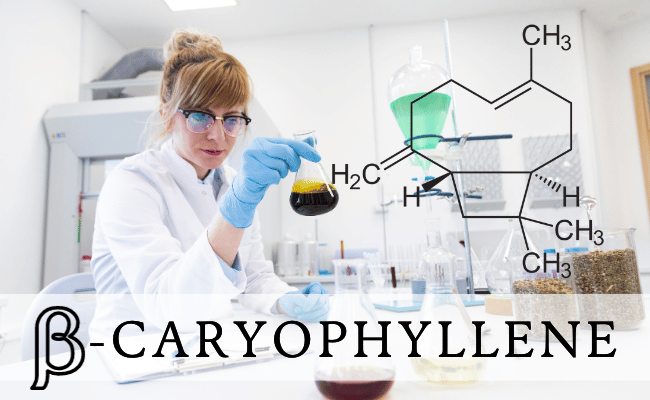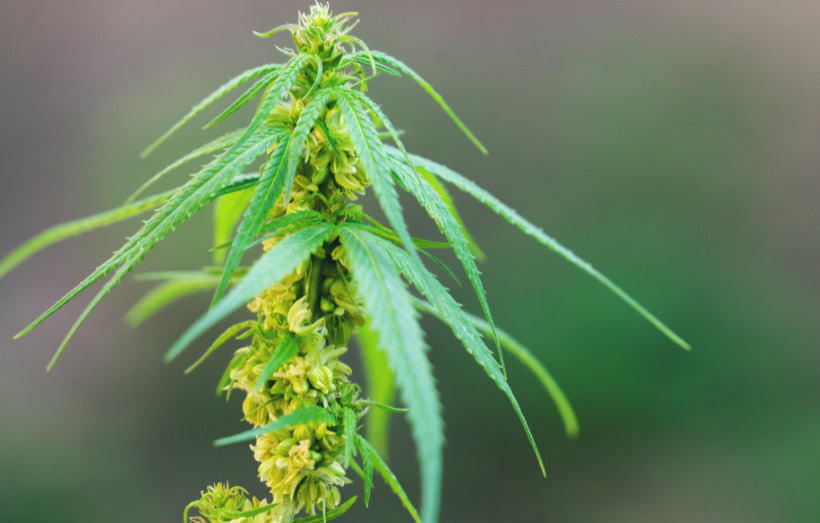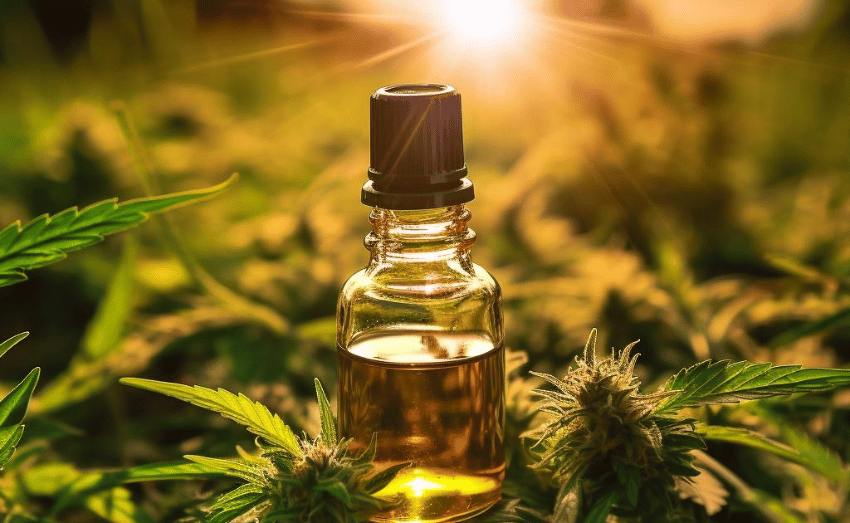If you’ve ever wondered why the cultivation of hemp seems to be on the rise, you’re not alone. This plant, once stigmatized, is now embraced by many due to its multitude of uses and benefits. Let’s break down the reasons, backed by science and expert opinions, on why farmers are so keen on hemp.
What is Hemp?
Hemp is a versatile plant from the Cannabis sativa family. Unlike its cousin marijuana, hemp has minimal THC (below 0.3%), meaning it won’t get you “high”. This plant has been around for centuries, with historical records showing its use in textiles, food, and more.
Believe it or not, hemp has been with humanity for millennia. Archaeological findings suggest that our ancestors were using hemp as early as 8,000 BCE for various purposes, including textiles and medicine.
The 20th century saw a decline in hemp cultivation, largely due to misconceptions associating it with marijuana and the psychoactive effects of THC. This led to legal restrictions in many countries.
Why is Hemp Popular Among Farmers?
There are several reasons why farmers are turning to hemp cultivation:
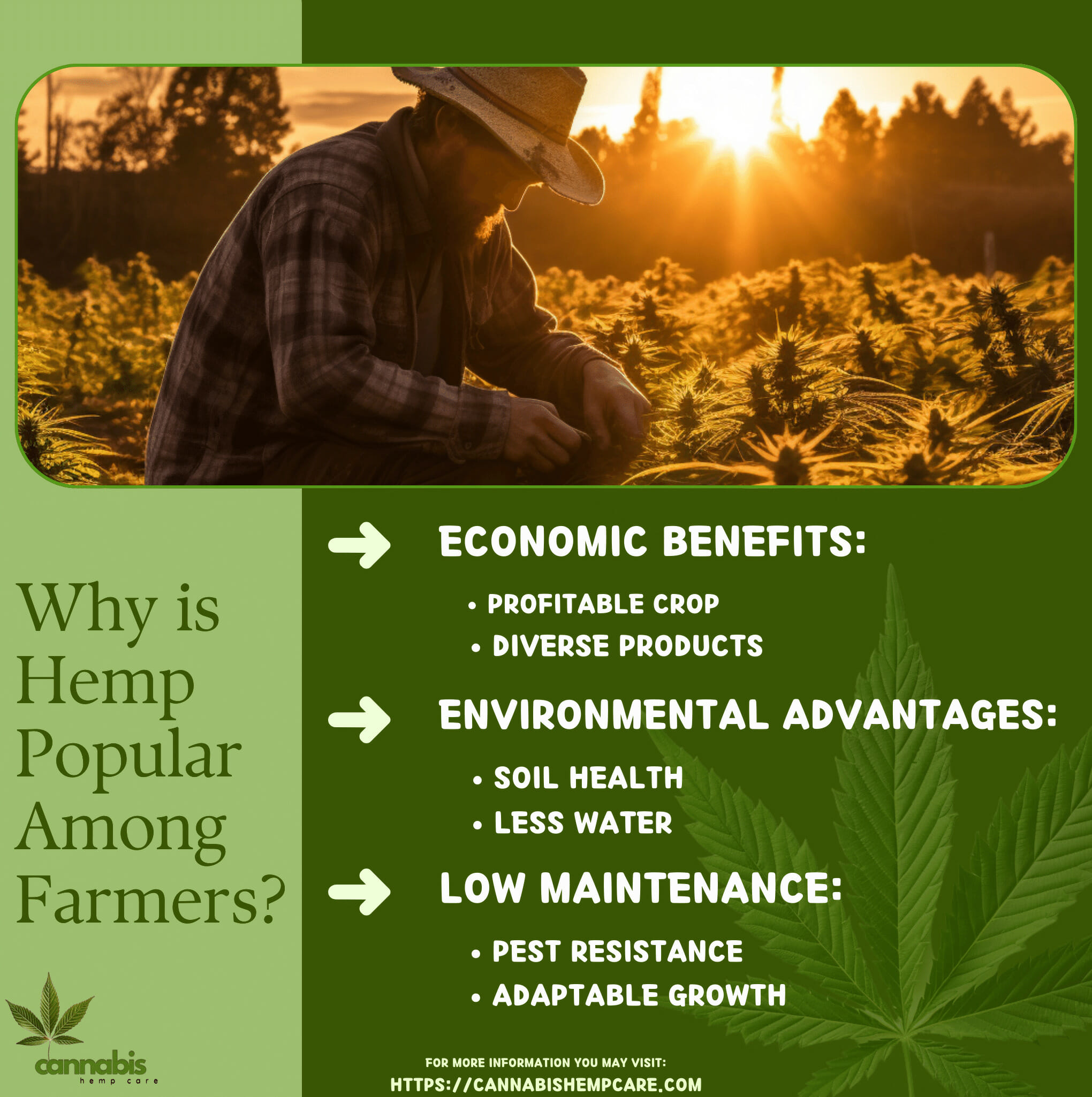
Economic Benefits:
- Profitable Crop:
A comprehensive study conducted by the University of Wisconsin revealed that hemp has the potential to be remarkably profitable for farmers. In comparison to conventional crops, hemp stands out as a high-value option that can significantly contribute to a farmer’s income. This economic advantage makes it an attractive choice for many.
- Diverse Products:
Hemp isn’t limited to just one use. Research and market trends show that hemp can be transformed into a wide array of products, ranging from textiles and clothing to nutritious food items and even biofuel. This versatility means that farmers can tap into multiple markets, thereby increasing their potential revenue streams.
Environmental Advantages:
- Soil Health:
Studies indicate that hemp possesses an incredible ability to rejuvenate soil health. By growing hemp, farmers can help remove harmful toxins from the soil and enhance its overall structure. A research article published in the “Journal of Industrial Hemp” highlights hemp’s potential to clean soil in a process known as phytoremediation, making it an environmentally beneficial crop.
- Less Water:
Compared to water-intensive crops like cotton, hemp requires significantly less water for its cultivation. This reduces the strain on water resources and aligns with sustainable farming practices. A study published in the journal “Agronomy” underscores hemp’s water-efficient nature, further establishing its reputation as an environmentally friendly choice.
Low Maintenance:
- Pest Resistance:
Scientific research demonstrates that hemp exhibits natural resistance to pests. This means that farmers can reduce their reliance on harmful pesticides, thereby contributing to a healthier ecosystem. A study conducted by researchers from the University of Kentucky found that hemp plants produce natural compounds that deter pests, potentially reducing the need for chemical interventions.
- Adaptable Growth:
Hemp’s adaptability is a boon for farmers. It has the remarkable ability to thrive in a variety of soil types and climatic conditions. This adaptability ensures that farmers across different regions can benefit from hemp cultivation. A research article published in the “Journal of Experimental Botany” delves into hemp’s capacity to adapt to diverse environments.
In essence, farmers are turning to hemp for its economic viability, versatility, positive impact on the environment, and ease of cultivation. With studies and evidence backing these advantages, it’s clear that hemp presents a promising opportunity for both seasoned and novice farmers alike.
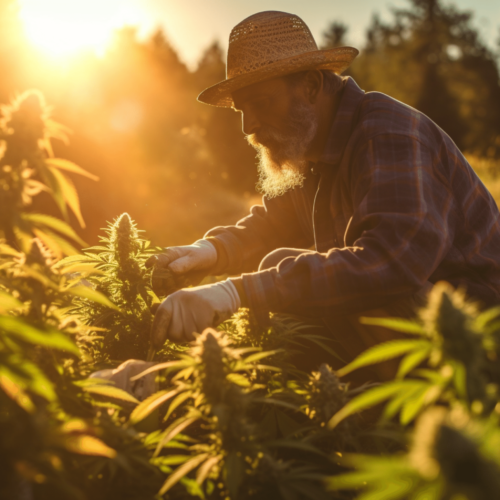
The Science Behind Hemp’s Benefits
How does Hemp Improve Soil Health?
Hemp has a deep root system. These roots prevent soil erosion, improve its structure, and can even absorb heavy metals, thus detoxifying the land. A study by the University of Eastern Finland suggests that hemp can be used in phytoremediation projects due to its ability to purify the soil.
The hemp seed is a superfood. It’s packed with omega fatty acids, proteins, and essential vitamins. Clinical nutritionists often advocate for hemp seeds as part of a balanced diet.
The Global Perspective on Hemp
How are Different Countries Approaching Hemp Cultivation?
While countries like Canada and parts of the EU have embraced hemp for its industrial potential, others remain cautious. However, the global trend is shifting toward a more accepting stance, backed by research and proven economic benefits.
Which Industries Are Most Influenced by Hemp?
Apart from agriculture, industries like construction, healthcare, and textiles are seeing a surge in hemp-based innovations. With the rise of sustainable consumerism, companies are keen on integrating hemp into their products.
What Do Experts Say?
Dr. Jane Thompson, a renowned agronomist, states, “Hemp presents an exciting opportunity for farmers. Its environmental benefits coupled with economic potential make it a win-win.”

Are There Challenges in Growing Hemp?
Absolutely. Like any crop, hemp presents its challenges:
- Legal Barriers: While many countries have legalized hemp cultivation, there are still regulations and restrictions that farmers need to navigate.
- Harvesting Challenges: Without specialized equipment, harvesting hemp can be labor-intensive.
How is Hemp Used?
From your shoes to the smoothie you drink, hemp’s versatility is astounding:
- Textiles: Durable and long-lasting, hemp is used to make clothing, shoes, and even ropes.
- Food: Hemp seeds are packed with nutrients. They can be eaten raw or turned into milk, oil, or protein powder.
- Medicine: CBD, a compound found in hemp, is used in various therapeutic products to alleviate conditions like anxiety and pain, as supported by numerous clinical studies.
- Building: Believe it or not, hemp can be used to produce a concrete-like material called ‘hempcrete’, which is both sustainable and insulating.
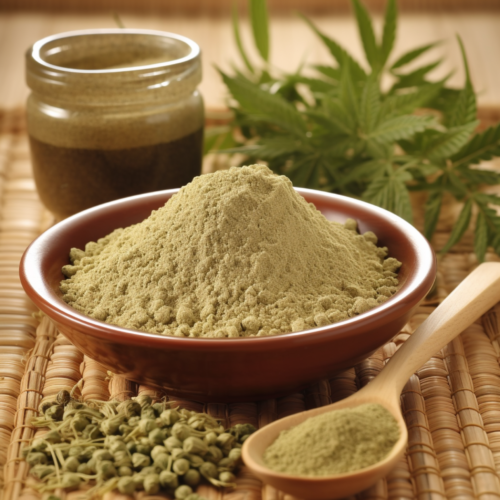
Conclusion
To the beginners out there, understanding the potential of hemp can be eye-opening. As we peel back the layers of misconception and delve into the science, research, and expert opinions, the picture becomes clear: hemp holds promise, not just for the farmer, but for the planet. As always, make sure to stay informed and approach the topic with an open mind.
FAQs
What is the purpose of hemp?
Hemp serves various purposes, including producing textiles, paper, biofuel, food products, and even construction materials.
What is so special about hemp?
Hemp is versatile, growing well in different environments. It requires less water, helps soil health, and offers a wide range of valuable products.
Is hemp the most sustainable crop?
Hemp is among the most sustainable crops due to its low water needs, minimal pesticide use, and ability to restore soil health.
Which country uses the most hemp?
China is one of the largest producers and consumers of hemp globally, followed by the European Union and Canada.
What environment does hemp grow best in?
Hemp thrives in well-drained soil and can adapt to various climates, making it suitable for many regions around the world.

